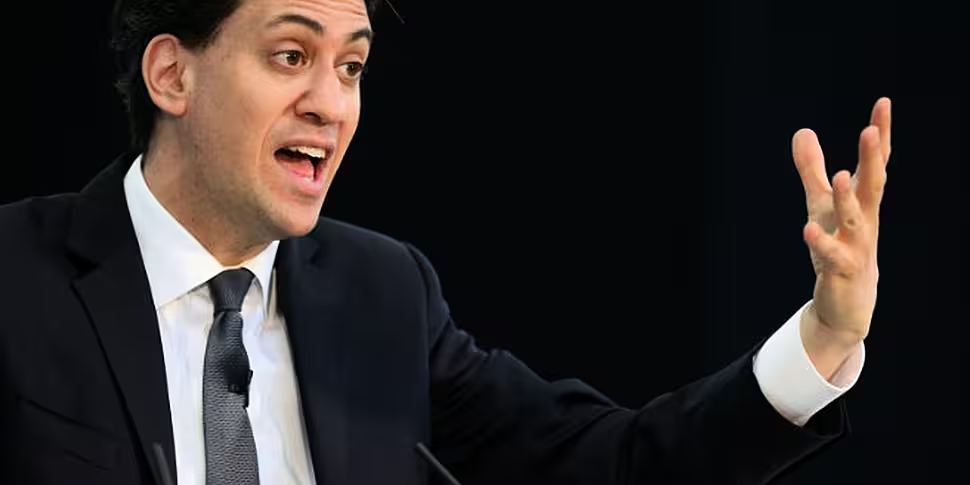Ed Miliband has said that if being prime minister meant a deal with the SNP then there would be no Labour government.
It is the furthest the Labour leader has gone on ruling out any agreement with the Scottish National Party, leaving little wriggle room for post-May 7 negotiations.
As the General Election campaign enters its endgame both Miliband and Cameron attempted to persuade voters to help them win a majority victory in a week’s time.
In a bruising 90-minute BBC Question Time both leaders insisted they would not need to compromise and could deliver their manifestos in full without needing support from other parties.
An ICM/Guardian poll on the TV battle, with 30-minute sessions for each of the three main parties, suggested Cameron was the victor.
It indicated 44 per cent thought Cameron performed best, 38 percent Miliband, while only 19 per cent put Nick Clegg ahead.
Miliband said: "Let me be plain - we are not going to do a deal with the SNP."
He added: "I'm not going to sacrifice the future of our country, the unity of our country, I'm not going to give in to SNP demands around Trident, around the deficit or anything like that.
"I'm not going to have Labour government if it means deals or coalitions with the SNP."
Speaking on BBC Scotland Question Time, after Miliband's appearance, SNP leader Nicola Sturgeon said: "I heard Ed Miliband and he sounded awfully like he was saying, and I hope that I am wrong about this because I think people across Scotland and much of the UK will be appalled if I am right, he sounded as if he was saying that he would rather see David Cameron and the Conservatives back in government than actually work with the SNP.
"Now, if he means that then I don't think people in Scotland will ever forgive Labour for allowing the Conservatives back into office."
Cameron said if the Conservatives had to team up with another party to stay in power he could be trusted to "do the right thing for the country" as he did in 2010.
However, he said this time he was confident he could win the 23 seats he said he would need to win a majority.
But he added: "I believe I did the right thing in forming a coalition and having a decisive government to deal with the mess that we are left but this time I think we can go one better."
The audience made clear they were not convinced either would be able to govern without the support of another party and polls have consistently suggested neither party will win a majority.
Nick Clegg agreed one of them would be prime minister but said it was for the public to decide which party would put them there - his, the SNP or UKIP.
He said the Liberal Democrats would seek to form a coalition with the party which got the "biggest mandate" from voters first but would consider speaking to the second-place party.
He said: "The party that gets the biggest mandate from you, in other words the party with the most votes and the most seats, even if they haven't got a slam-dunk result, has in a democracy the right to make the first move, to reach out to other parties to assemble a government if they so choose.
"It may not then work out, other parties may not reciprocate and then other arrangements might need to be arrived at."
However, polls have indicated his party may not win enough seats to push either the Conservatives or Labour to a majority government.
Clegg said he would not quit as Lib Dem leader if the party failed to get into coalition with whoever ended up in number 10.
Much was made of Miliband slipping off the edge of the stage as he made his exit, but Labour was quick to suggest he had slipped on Cameron's sweat.
All three of the main party leaders were questioned on their trustworthiness during their 30-minute slots in front of the studio audience.
Cameron was asked why the Tories were not trusted with the NHS, Miliband was asked how Labour could be trusted not to overspend and borrow too much and Clegg was asked how he could be trusted after his about-turn on student tuition fees.
Taking the first slot, the Prime Minister attempted to convince voters on welfare cuts, immigration and the NHS.
He insisted the NHS was his "life's work". And he rejected the Liberal Democrat claims the Tories were planning to cut child tax credits and child benefits if they returned to power.
But he did vow to press ahead with £12bn of welfare cuts telling the audience: "We have to reform welfare, making sure that work always pays, keeping taxes down, that is the programme. If you want unlimited welfare increases, that is Ed Miliband's programme."
Miliband was given a rough ride over Labour's record in power, starting with the note left by the Chief Secretary to the Treasury Liam Byrne in 2010 which said there was no money left.
He was accused of lying when he said that the party had not overspent in power.
Miliband said: "We have a global financial crisis, causing the deficit to rise. President Obama is not dealing with a high deficit because we have got schools and hospitals. He was dealing with that because of the global financial crisis.
The audience is made up of 25 per cent Conservative supporters, 25 per cent Labour, 25 per cent Liberal Democrat, 15 per cent other parties and 10 per cent who are undecided.









